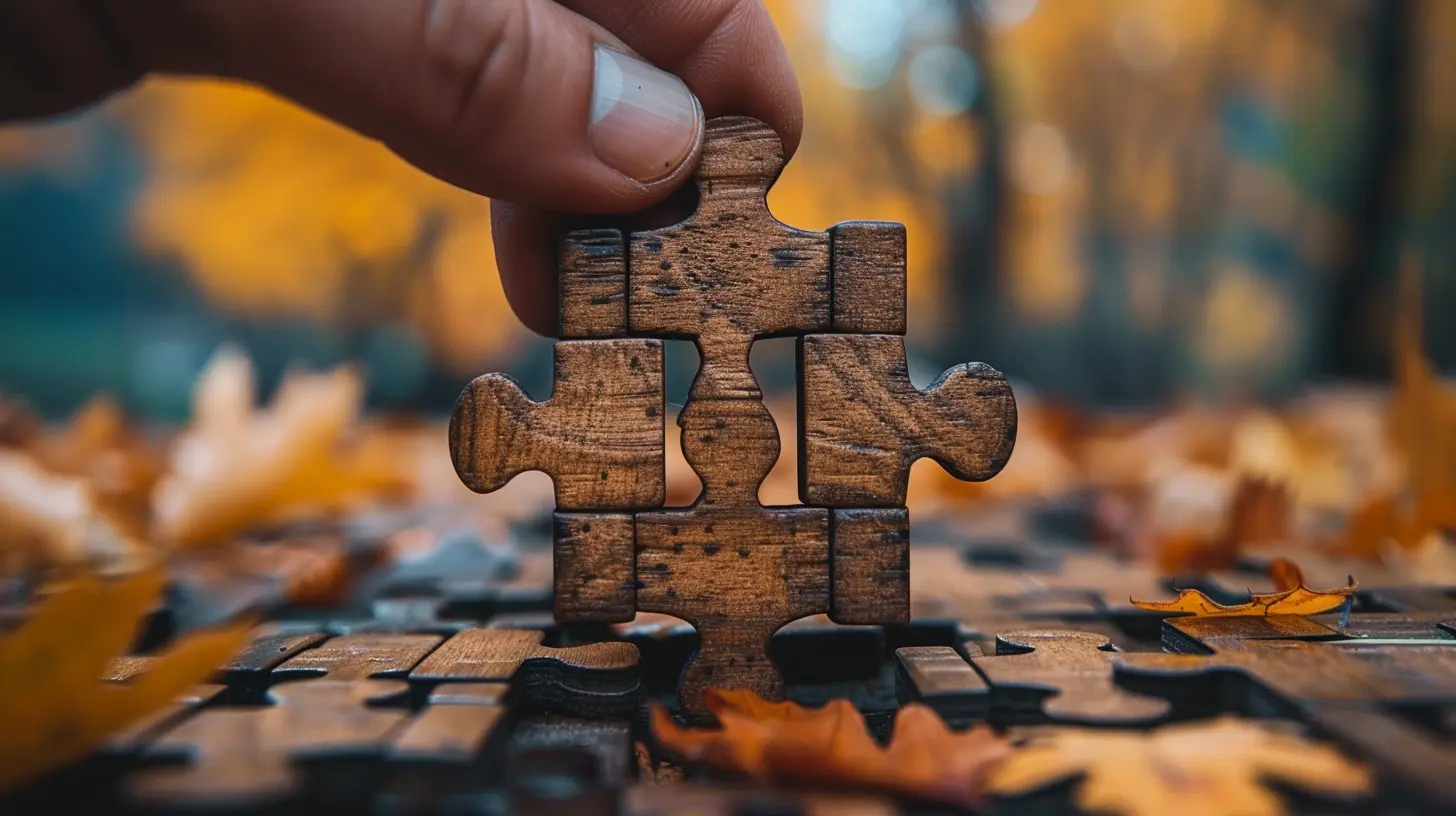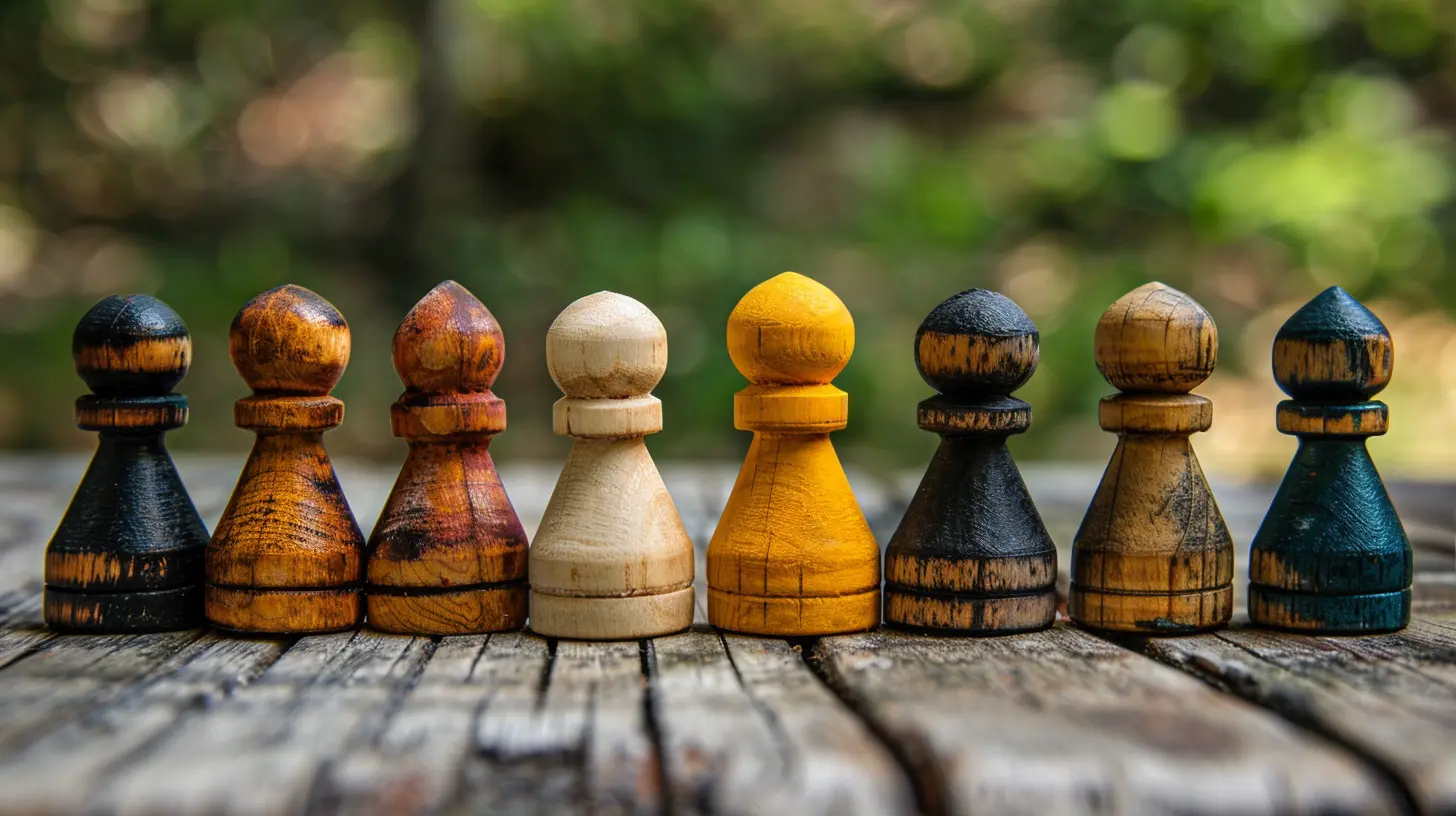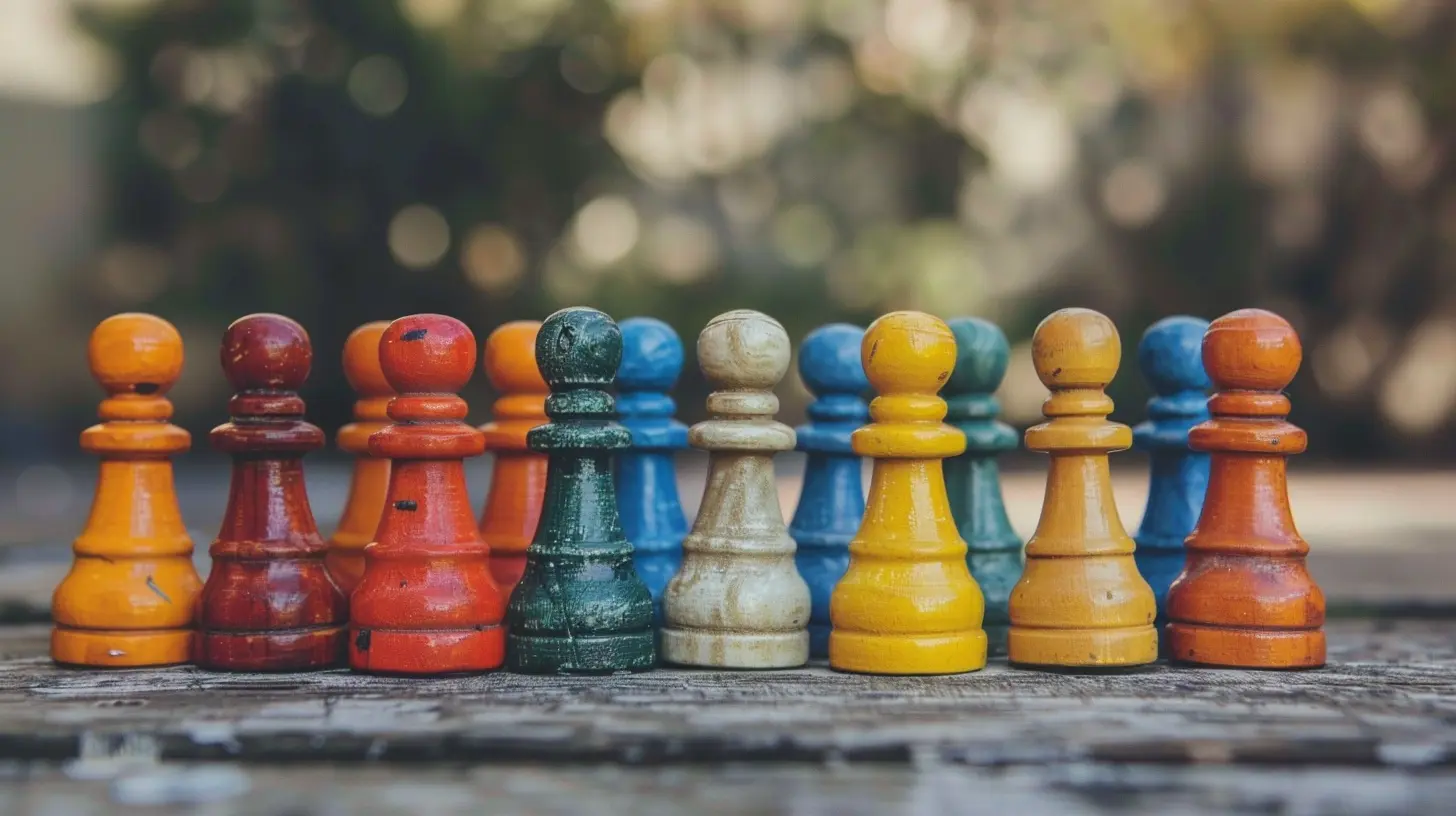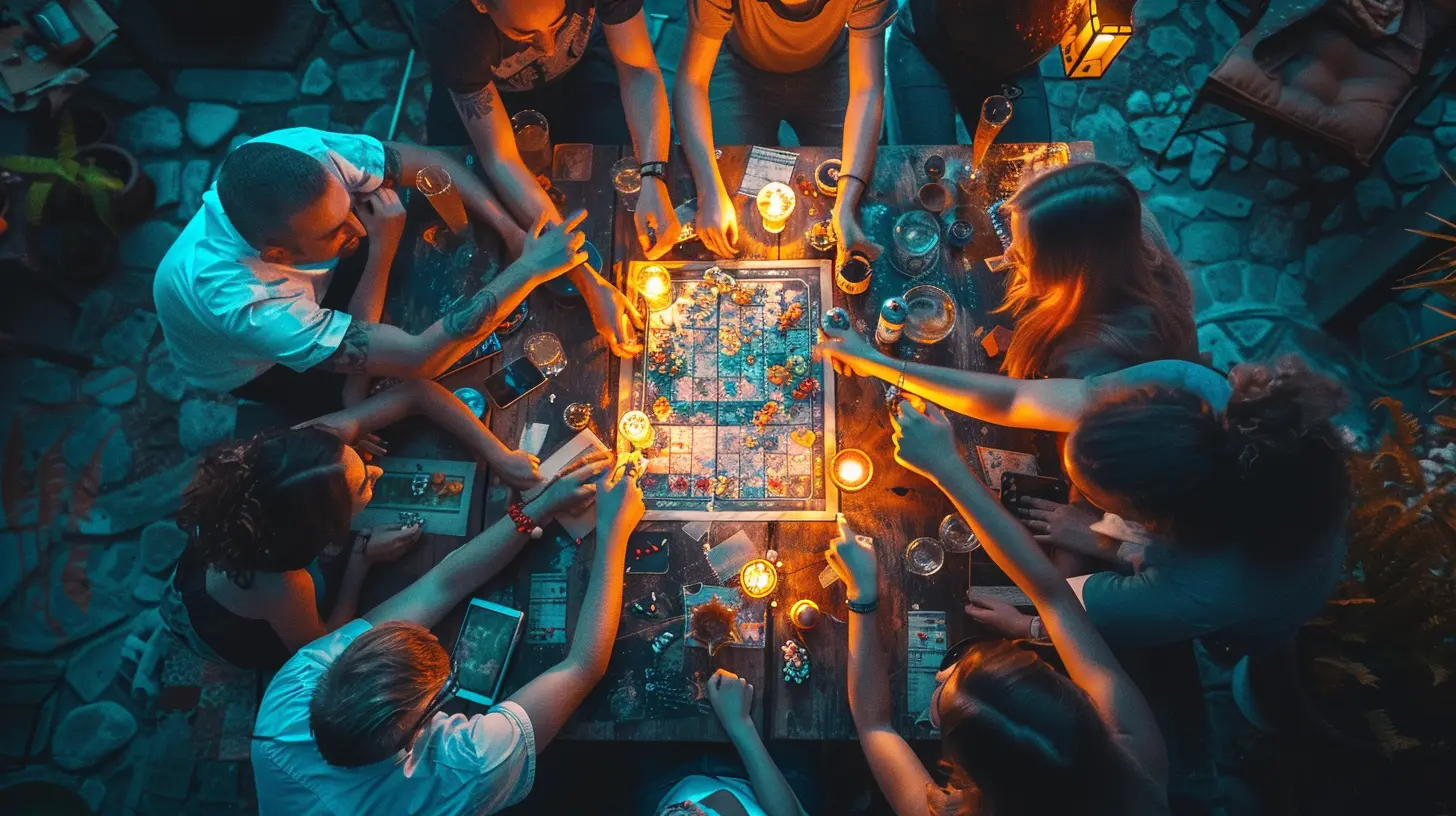Playing Nice: How Cooperative Games Shift Focus from Competition to Collaboration
29 June 2025
Ever had a game night spiral into a full-blown rivalry? Some dice rolled wrong, someone hoarded all the power-ups, and suddenly it’s no longer about fun, but about winning. We've all been there. But what if I told you there’s another way to play—one that prioritizes teamwork over takedowns?
Welcome to the world of cooperative games. In this space, it's not "me vs. you"—it's "us vs. the challenge." Whether it's surviving a zombie apocalypse or solving ancient mysteries, these games are designed to bring players together rather than tear friendships apart.
And guess what? Cooperative games are having a big moment right now. Curious? Let’s dive deep into the mysterious and evolving realm of co-op gameplay and why it’s quietly changing the way we experience fun.
The Rise of Playing Nice: A Cultural Shift
Once upon a time, games were all about crushing opponents. Think back to arcade classics, board games, and early online shooters: the winner takes all, and the loser… well, they get to try again. Competitive gaming has always been thrilling, no doubt. But over time, players began craving something different—something less cutthroat and more connected.Enter cooperative games.
In a world that often feels a bit too “every-person-for-themselves,” co-op games create a refreshing playground where working together isn’t just tolerated—it’s required. This cultural shift reflects our deeper social needs. We’re more connected digitally, but lonelier than ever. These games offer a real chance to bond, engage, and actually listen to other people.
What ARE Cooperative Games Anyway?
Let’s get the basics down. A cooperative game is any type of game—board, video, card—where players work as a team to defeat a common obstacle. That could be enemy hordes, puzzles, or even time itself.There’s no one winner. Either you all succeed together, or you fail together.
Popular examples? Think:
- Pandemic – Save the world from infectious diseases.
- It Takes Two – An emotional rollercoaster of a platformer that literally cannot be played solo.
- Left 4 Dead – Survive waves of zombies with your squad, not alone.
- Overcooked – Test your friendships while running a chaotic kitchen (good luck with the fire extinguisher).
Don’t let the collaborative twist fool you. These games can be just as intense and heart-pounding as your typical battle royale. The stakes are still high—you’re just not going at it alone.
Why Competition Fatigues Us
Let’s be real: Constant competition can be exhausting. Multiplayer games that pit players against each other often bring out the worst—rage-quitting, toxic chats, and that never-ending grind to stay on top.And while that adrenaline rush can be addictive, it’s also draining. Over time, it can feel like you’re clocking into another job rather than playing for fun.
Cooperative games offer a remedy to that burnout. They’re slower-paced (usually), more thoughtful, and foster a sense of shared achievement. You’re not climbing a leaderboard, you’re reaching goals together.
Plus, there’s something psychologically satisfying about being part of a team. Studies even show that collaborative play can boost problem-solving skills, empathy, and trust. Not bad for an evening spent slaying dragons or curing diseases, right?
The Psychology Behind Playing Together
Here’s a fun fact: Cooperative games tap directly into your brain's social reward systems. When you achieve goals with others, your brain releases oxytocin—the so-called "bonding hormone." That’s the same chemical that builds trust and connection in real-life relationships.So yeah, playing co-op games isn’t just fun—it’s neurologically rewarding.
And that’s just the tip of the iceberg. Cooperation requires communication, strategy, and sometimes even vulnerability. You’ve got to admit when you mess up, ask for help, and trust your teammates. In competitive games, that kind of honesty could get you steamrolled. In co-op games? It could save the whole squad.
From Rivalry to Unity: How Co-op Games Transform Relationships
Have you ever noticed how differently people behave during a co-op game? Siblings stop bickering. Friends who rarely talk suddenly become a well-oiled survival unit. Even strangers online can surprise you with kindness when you're chasing a shared goal.Co-op gaming creates fertile ground for stronger interpersonal bonds. It turns "I" into "we"—and that’s powerful stuff.
Got kids? Cooperative board games are an amazing way to teach teamwork and empathy from a young age. Planning a game night with non-gamers? Co-op games break down that intimidation barrier because there's no pressure to be the best—just to show up and try your best.
Not All Rainbows: The Challenges of Co-op Gameplay
Don’t get me wrong—co-op games aren’t perfect. Team-based play can quickly turn sour if players aren't on the same page. One overbearing player can dominate the experience ("alpha-gaming" in board game lingo), while disengaged teammates can drag the rest down.And let’s not forget: Not everyone’s a natural collaborator. Some players thrive in glory-seeking solos, and that’s okay.
The key lies in design. Great co-op games balance individual roles with shared objectives. They keep everyone involved, challenge communication, and reward synergy. And when they get it right? Magic.
The Future is Friendly: Cooperative Games and the Next Generation
As indie developers gain more ground and innovation flourishes, we’re seeing some absolutely brilliant co-op mechanics emerge. Games like Phasmaphobia challenge players to communicate effectively in creepy, high-stakes situations. Titles like A Way Out weave storylines that require dual perspectives to fully unravel.Even mainstream AAA titles are baking in more co-op options. It’s no longer an afterthought or side-mode—it’s front and center.
Why? Because cooperative play is sticky in the best way. Players are more likely to return to games that create meaningful, shared experiences. They're memorable. They're emotional. And they’re hard to replicate in solo settings.
Why Now? Timing is Everything
Let’s address the elephant in the room. The past few years have changed us. Isolation during lockdowns made us crave connection more than ever. Families were stuck indoors, screens became lifelines, and co-op games offered a way to reconnect with others, even across the world.The result? A boom in team-based gaming. Developers noticed. Gamers leaned in. And now, it’s more than a trend—it’s a genre staple.
Top Must-Play Co-op Games Right Now
Feeling inspired? Here’s a quick hit-list of games that are crushing the co-op category in 2024:1. It Takes Two
A beautifully crafted love letter to partnership and teamwork. It’s quirky, emotional, and loaded with unique mechanics that demand communication.2. Deep Rock Galactic
Space dwarves, mining missions, and alien bug swarms. What more could you want? Perfect for squad coordination and chaotic fun.3. Forbidden Island
A board game classic. Easy to learn, fast to play, and relies on solid teamwork to survive rising waters.4. Valheim
This Viking survival game shines brightest when shared with friends. Build, battle, and explore—all as a unit.5. Keep Talking and Nobody Explodes
One player defuses a bomb. The rest can only help by reading the manual. It’s hectic, hilarious, and a test of true communication.Final Thoughts: Winning Together Is The New Winning
Cooperative games aren’t just a passing phase—they’re a genuine evolution in how we define fun. By shifting the focus from beating each other to building something together, they mirror some of the best parts of real life.In an age where genuine human connection is more precious (and rare) than ever, games that encourage empathy, communication, and teamwork offer more than just entertainment—they offer healing.
So, the next time you're planning a game night, skip the usual suspects and try something that gets everyone working together. Who knows? You might just discover that the best way to win… is to win together.
all images in this post were generated using AI tools
Category:
Cooperative GamesAuthor:

Luke Baker
Discussion
rate this article
2 comments
Katherine Collins
Great insight! Cooperative games truly foster teamwork and connection.
September 4, 2025 at 2:53 PM

Luke Baker
Thank you! I'm glad you found the article insightful. Cooperative games really do promote stronger connections among players.
Kenzie Mendoza
Cooperative games foster teamwork, enhancing social skills and shared experiences.
July 6, 2025 at 2:57 AM

Luke Baker
Absolutely! Cooperative games truly build teamwork and social skills, promoting meaningful connections and shared experiences among players.


